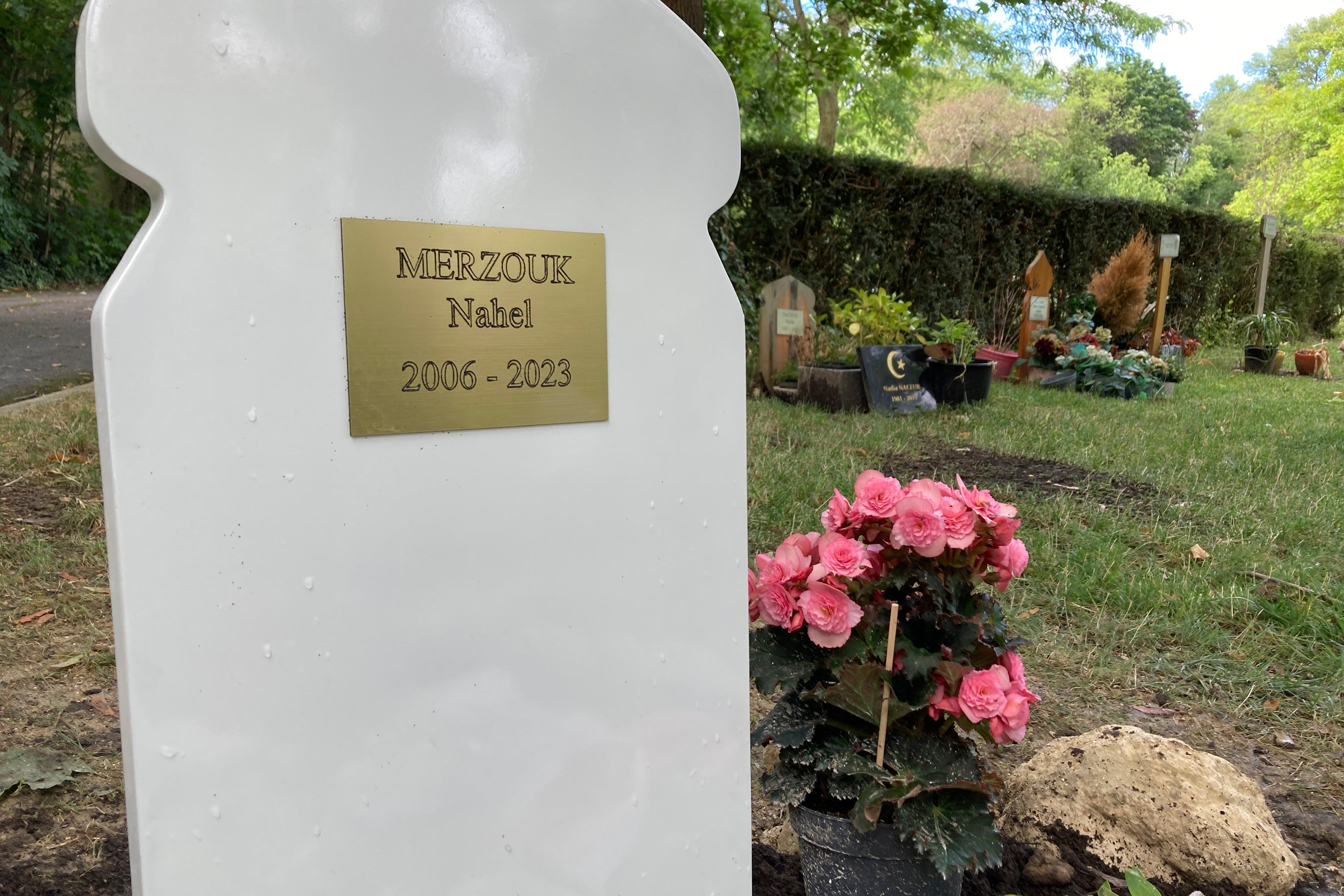A French community honors a teen killed by police. Political and racial tensions are the backdrop
The mother of a French teenager with North African origins killed by police is holding a silent march to mark one year since his death

One year after a French teenager with North African origins was killed by police — a shooting that sparked shock and days of rioting across France — his mother led a silent march Saturday to pay homage to her son.
It comes at a politically fraught time. Hate speech is blighting the campaign for snap parliamentary elections taking place this weekend, and an anti-immigration party that wants to boost police powers to use their weapons, and has historic ties to racism and antisemitism is leading in the polls.
Several hundred family members, friends and supporters gathered in the Paris suburb of Nanterre to remember 17-year-old Nahel Merzouk, who was shot dead at point-blank range by a police officer at a traffic check on June 27, 2023.
Within hours of his death, Merzouk, a delivery driver from a working-class neighborhood, became a symbol. For many across France, he was the embodiment of young French Black and North African men who, studies show, face police checks and discrimination more frequently than their white counterparts.
At Sunday's march, his mother Mounia spoke to the crowd then broke off in tears. Friends wore white t-shirts with Merzouk’s photo, and fellow residents of his housing project held a banner reading “Justice for Nahel.” The march ended at the spot where he was killed, and an imam sang and read a prayer.
There was no visible police presence, though organizers of the march recruited guards to ensure security for the event. Merzouk's mother asked politicians to stay away, to avoid politicking or tensions the day before France’s parliamentary elections.
On Sunday, French voters will cast ballots in the first round of snap elections for the National Assembly, the lower house of parliament, that could lead to the country’s first far-right government since the World War II Nazi occupation.
French opinion polls suggest the National Rally party could dominate the next parliament after the July 7 second round and get the prime minister’s job. In that scenario, Centrist President Emmanuel Macron would retain the presidency until 2027 but in a sharply weakened role.
“This march, happening now, it is a powerful symbol," said Assa Traore, who has been fighting for justice since her brother Adama died in the custody of French police in 2016.
“It means that history can’t write itself without us. We, from the working-class neighborhoods, are the firsthand victims of these elections. We realized, from an early stage, that the National Rally and far-right parties were a danger for our country and will weaken it," said the 39-year-old with Malian roots who will march alongside Merzouk’s family.
Merzouk's death, which was captured on video, stirred up long-simmering tensions between police and young people in housing projects and disadvantaged suburbs, many of whom are French-born youth with immigrant family backgrounds. Fueled by TikTok, riots spread with unprecedented speed before a mass police crackdown. The unrest caused, according to French authorities, more than $1 billion in damage.
The officer who fired the shot cited self-defense, and an extreme-right figure started a crowdfunding campaign for the policeman that drew $1.6 million before being shut down.
Citing security concerns, notably in housing projects and other impoverished areas in French suburbs or “banlieues,” the far-right National Rally wants to give a specific new legal status to police. If police officers use their arms during an intervention, they would be presumed to have acted in self-defense. Currently police officers have the same legal status as all French citizens and have to prove they acted in self-defense.
The left-wing coalition New Popular Front, meanwhile, wants to ban the use of some police weapons and dismantle a notoriously tough police unit.
“People fear the victory of the National Rally. But, we, people from working-class neighborhoods, are afraid every day that our sons, brothers, or husbands will be killed. Racism and racial profiling are our daily life," Traore said.
___
Angela Charlton in Paris contributed.
___
Follow AP's coverage of elections worldwide at https://apnews.com/hub/global-elections/
Bookmark popover
Removed from bookmarks